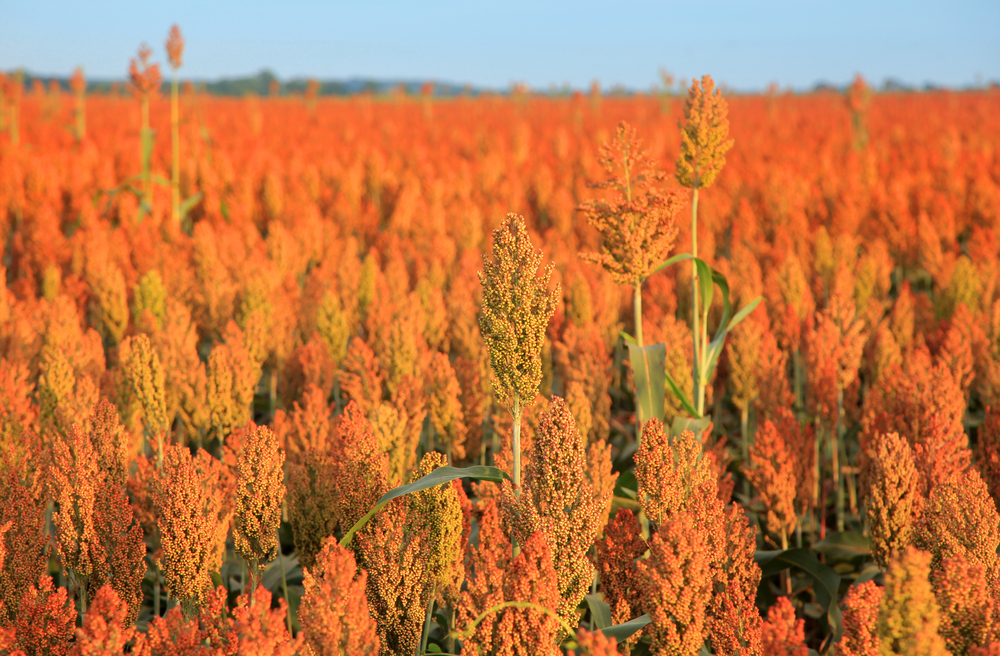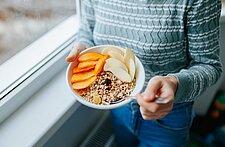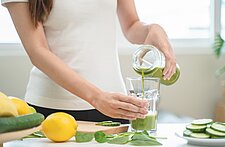 Trend Perspectives by Cynthia Maxwell
Trend Perspectives by Cynthia Maxwell
With Earth Week celebrations from April top of mind, I’m exploring Symrise’s Global Trendscope® trend "Climavore", and the ways that brands help improve the planet’s condition. Plant-based food and product innovations have been trending for quite some time now and are a step in the positive earth-saving direction. If there were to be a significant global shift towards plant-based products, it would result in a major reduction of carbon emissions and waste that, as of now, end up in our oceans. Meat has a huge impact on our greenhouse gas emissions and requires more and more land, impacting the environment negatively.
Discover the latest in food and beverage, subscribe to In-sight!
Plant-based is not perfect as imported vegetables and fruit leave a heavy carbon footprint. According to a recent BBC article, asparagus flown from Peru to the UK "has the highest carbon footprint compared to any other vegetable eaten in the country, with 5.3kg of carbon dioxide being produced for every kilogram of asparagus."
Understandably as a more plant-based diet is adopted, consumers also want to know the impact the new faux meats and alternative dairy products have on the environment. I recently mentioned a company that takes as much plastic out of nature as their packaging uses. COCOJUNE, a plant-based yogurt company, has a Plastic Neutral certification making them the first plastic neutral yogurt company ever!
Like COCOJUNE, some exciting innovations are paving the way for food and production practices that reduce the carbon footprint and set new standards in eco-diversity. Let's explore!
PLASTIC FREE
Starting with plastic reduction, Dutch supermarket chain Alber Heijn has an herb garden in-store where customers can cut just the right amount of herbs they need. The herb garden eliminates the plastic packaged herbs and provides the freshest option for customers.
Edible cutlery really should take off in a big way. Bakey's edible version comes in sweet, savory, and plain flavors and degrades in ten days if not eaten.
RECYCLING FOOD COUNTS TOO!
Your next cycling pants might be made out of coffee grounds! Worldwide over 2.25 billion cups of coffee are consumed each day! S.Cafe' decided to create yarns from the grounds by combining them with polymer to create performance fabrics. S.Cafe' fabric provides odor control and UV properties and has earned numerous ECO-friendly certifications and Innovation awards.
Related Article: The Virtual Age of Food and Drink
FUTURE FORWARD - SCIENCE BASED DAIRY AND MEAT
Perfect Day Foods has created a product through fermentation that gives the taste, texture, and health benefits of milk. Understanding that whey and casein were the secrets to the "creamy, melty, and silky" qualities like real dairy in ice cream, cheese and yogurt, Perfect Day can easily and safely acquire the DNA of these proteins through accessible scientific databases. Perfect Day chose fungi, a microflora, to apply the whey and casein DNA blueprint. The result is fungi that can produce the same milk proteins that cows have! Free of hormones, lactose, antibiotics, and cholesterol, Perfect Day Foods produces some of the purest milk proteins in the entire food industry. Compared to traditional dairy production methods, Perfect Day reduces greenhouse gas emissions up to 97%. Already partnering with ice cream companies Nicks and Brave Robot, this could most definitely change the face of alternative dairy products for the better!
What about meat produced from stem cells? That is what Memphis Meats is doing, intending to feed 10 billion people by the year 2050 and preserving the environment in the process. Memphis leads the cell-cultured meat revolution and already has the support of food industry titans.
Memphis Meats selects cells that can self-renew and grow into meat following the natural process to grow connective tissue and muscle the same as they would on an animal. In four to six weeks, the process is complete, and the meat is ready to harvest. The Memphis team is focusing on poultry, meat, and seafood.
NEW AND FORGOTTEN SUSTAINABLE FOODS AND INGREDIENTS
Since upwards of 75% of our food is sourced from 12 plant and five animal species, there is a recognition in the food industry that some of these species are now in a vulnerable predicament. New and forgotten food sources are starting to appear. Spirulina, an algea, is becoming increasingly popular, especially in the smoothie arena. Interestingly, spirulina can replace blue and green food colorings used in some foods.
Grains like sorghum grow abundantly and are being used to make popcorn! You can also find it in cereals and chips at grocery stores. Sorghum is also gluten-free.
Duckweed is similar to lentils, has a slightly sweeter taste, is full of Omegas, micronutrients, and fiber, and is being grown in mass amounts on aquafarms.
With as much innovation in plant-based alternatives that we currently have, there are still obstacles and intricacies to solve. Importing foods, as mentioned above, can weigh on the environment just like meat production. Changes in the future could also include grocery stores, food suppliers, and consumers adopting a more seasonal and local approach to fruits and vegetables. Ultimately we all will have to participate in preserving and nurturing our earth.
Don't miss the next Trend Perspectives article - subscribe to our Weekly Newsletter!






